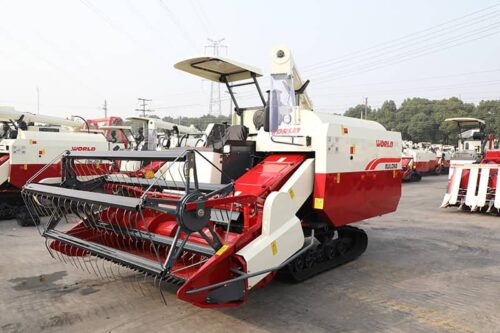Today, industries are being driven by technology, and agriculture is not left behind. Agro Tech has influenced farm operations and improved the way farmers do work, and as a result boosted productivity and efficiency.
Industrialized countries now adopt the use of technology to drive their farming operations. A clear example is Turkey. In 2010, the government of Turkey came up with an innovative, agro tech-driven approach using satellite systems to help farmers fight climate change. The solution allowed farmers access real-time agricultural data ranging from soil quality to atmospheric temperature. This information helped them know what crop to plant, when to expect rain, when to plant and get the highest yield.
In a summit on the future of Agriculture held by The World Government, they raised 4 agricultural pressure points. There were demographics, scarcity of natural resources, food waste and climate change. These 4 developments placed a pressure on agriculture’s ability to meet up with demand as our population rises.
The way forward remains agro tech.
Many nations have already began adopting technological advancements in their agricultural sector. One of the largest e-commerce platforms in China PinDuoDuo, launched an experiment to see if Artificial Intelligence could improve strawberry farming.
Innovations like 3D printing of foods and seawater agriculture, albeit new fields, are gradually growing to support the sector. There are hopes that these innovations will be pioneer a new way of doing agriculture in the next decade. Use of drones, crop sensors and green houses are creating new levels of productivity for farmers.
Ending drudgery and ensuring sustainable farming is the goal of adopting Agro tech.
Where is Nigeria in all these?
Since the 1970s, Nigeria’s agricultural sector has declined drastically. A country who once grew around 18% of the world’s cocoa now has its share of production down to 8%.
With the persistent rise in food insecurity, small-scale Nigerian farmers are looking to new ways to improve food production.
Agriculture in Nigeria is encumbered with many challenges ranging from poor mechanization rate to low agro tech innovations. As a result, poor-yields and post-harvest losses has always been the order of the day. For us to be a part of the future, we must begin to fix the status of our agricultural sector. Currently, a large percentage of rural farmers depend on the use of manual labour and crude implements for farming. This not only reduces the potential of agricultural contributions to our economy, but also the profits of farmers.
In recent years, several promising and upcoming agro tech companies have started offering solutions to address these challenges. One of such companies providing mechanization solutions through tech is Tractor on the Go. With the click of a button, farmers can book farm mechanization equipment such as tractors and farm implement farm operations in Nigeria through an app. Their primary focus is to give rural farmers more access to farm mechanization tools and rid the sector of drudgery. They have so far helped over 1million farmers in the country.
With the speed at which the population of the world is growing, agric tech is only one part of the solution. Governments must think strategically about enabling tech companies, institutions, research centers, policies etc that can drive the future of agriculture we want to see.
TL; DR
The future of farming will involve the use of technology in driving fundamental changes. Changes such as adoption of 3D food printer, seawater agriculture, drones etc to predict and take advantage of favorable planting conditions.



[…] Agro-technological trends and procedures were brought into the scene and enforced to improve farming operations. These […]